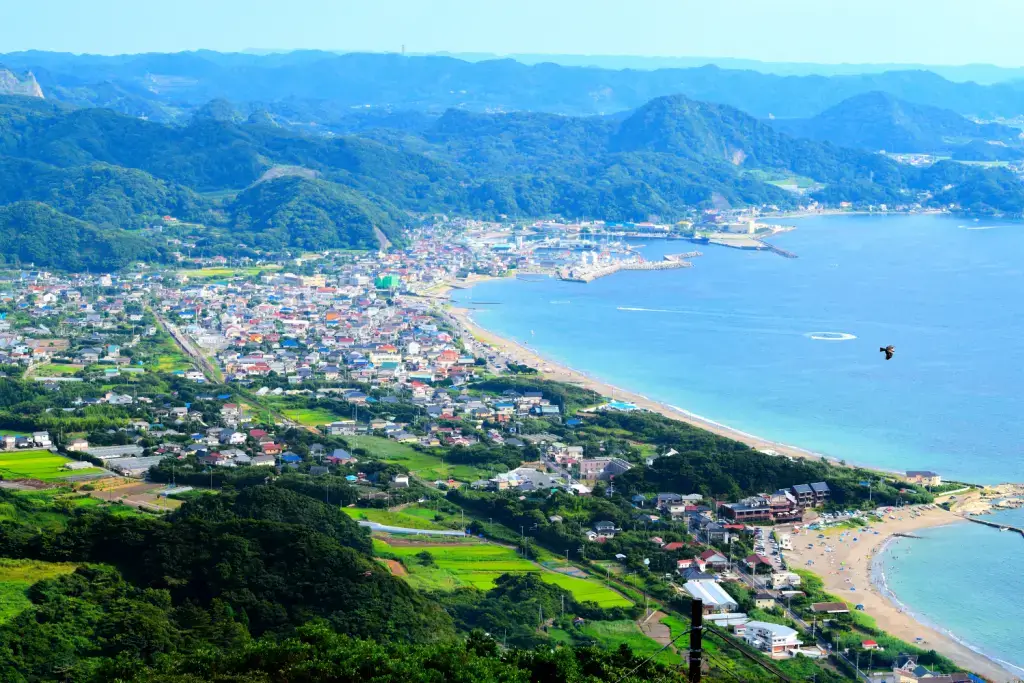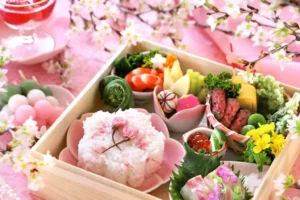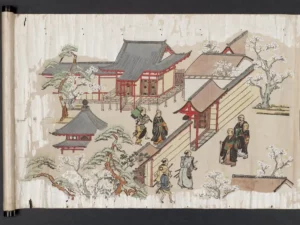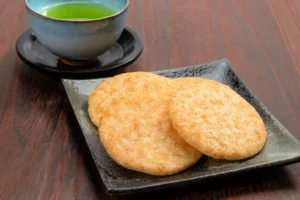The Boso Peninsula is an ideal getaway in Japan with its tranquil green hills, rocky cliffs, and stunning beaches. It’s filled with scenic wonders and simple pleasures and rich in history and culture. Let’s explore more about this beautiful spot together and also discover some of its must-see landmarks!
Table of Contents
ToggleWhere is the Boso Peninsula?
The Boso Peninsula is a large and scenic area in the southern part of Chiba Prefecture, just across Tokyo Bay from the bustling city of Tokyo. Thus, it’s easy to get to, taking just around an hour and a half by bus or driving. Its origin dates back millions of years and has unique geographical features. It sits on the eastern edge of Tokyo Bay and stretches into the Pacific Ocean. The peninsula is about 5,034 square kilometers and has the Pacific Ocean on the east and south, Tokyo Bay on the west, and the Edo and Tone Rivers on the north.
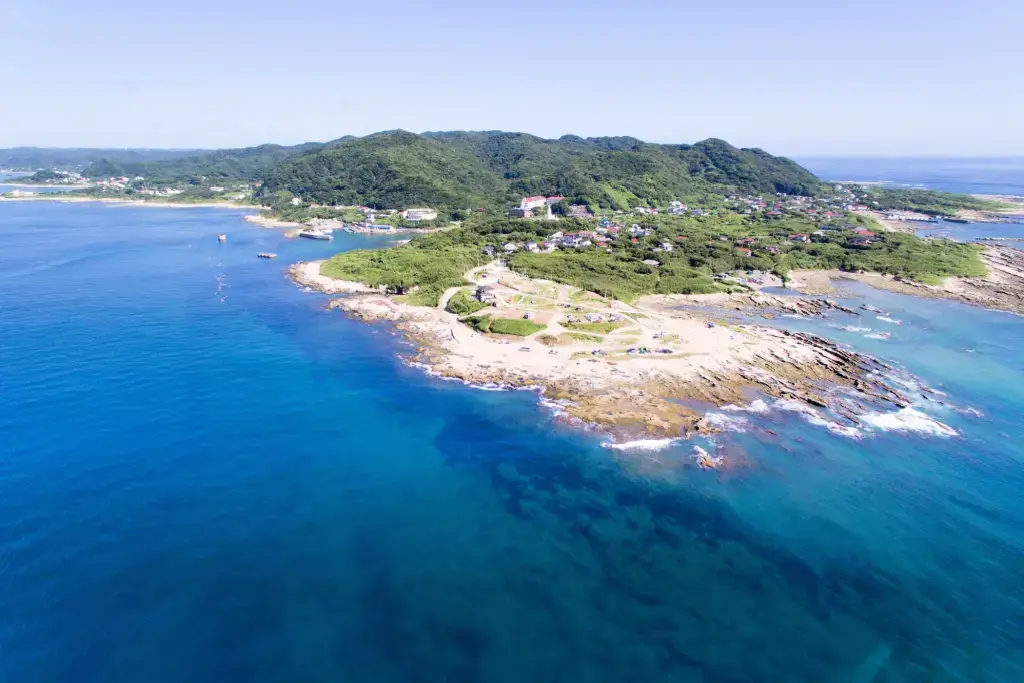
This area is home to various activities, attractions, and festivals. It’s also famous for fresh seafood, fruits, and flowers. Many local products show the area’s diverse nature and agricultural heritage. Here are the five most attractive spots worth visiting on the peninsula:
Kamogawa Seaworld
Kamogawa SeaWorld is a fantastic marine leisure center in Kamogawa City. Established in 1970, this public aquarium is also a proud Japanese Association of Zoos and Aquariums member. Initially launched by the Yasushi Tourism Corporation, it began focusing on marine animal exhibitions and breeding programs for orcas, dolphins, and sea lions. It’s also the first aquarium in Japan to start breeding killer whales. Over the years, the park expanded its offerings, including many more attractions and educational exhibits.
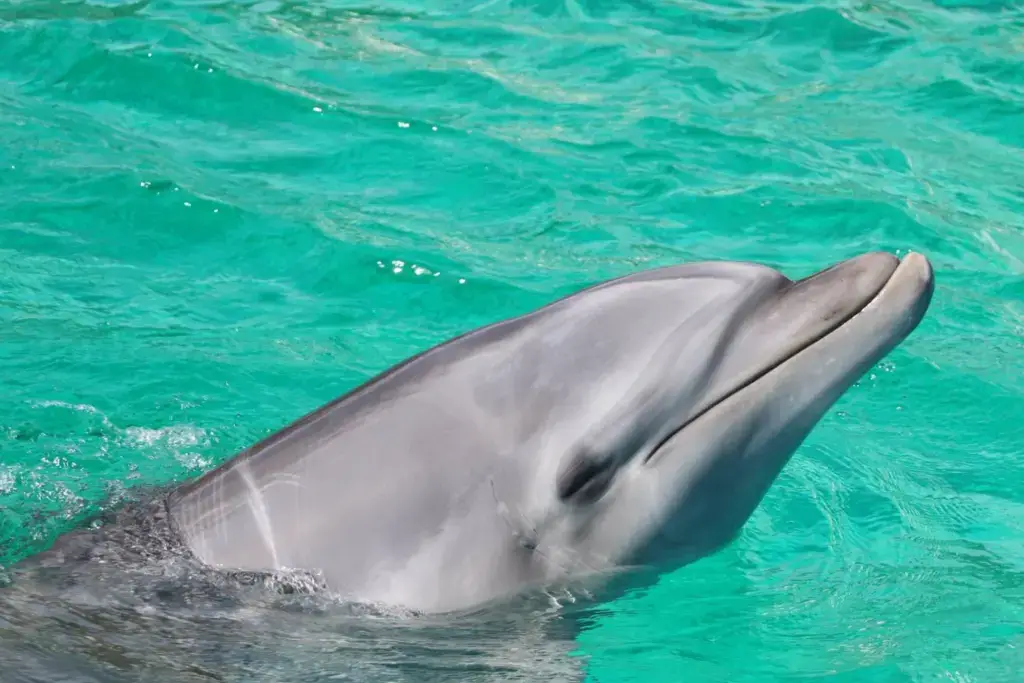
Kamogawa SeaWorld boasts three intriguing zones: Eco Aquaroam [sic], Tropical Island, and Rocky World, each recreating natural animal habitats. Visitors can see diverse sea animals, from beluga whales to penguins. They can also enjoy numerous thrilling shows, such as the orca performance and sea lion show, and interactive experiences like feedings and animal encounters.
Furthermore, you’ll find unique souvenirs like plush toys and themed merchandise at gift shops. Also, don’t forget to dine at Restaurant Ocean, where you can enjoy delicious meals while watching adorable orcas swim by.
Tateyama Castle
Tateyama Castle, in Shiroyama Park, is like stepping into the past surrounded by beautiful nature. Sitting high on a hill, it gives fantastic views of Tokyo Bay and the Boso Peninsula. Initially built in 1580 by Satomi Yoshiyori, it served as a crucial stronghold guarding the entrance to Edo Bay during the Sengoku era (1467-1615). Once torn down, the castle tower was reconstructed in 1982.
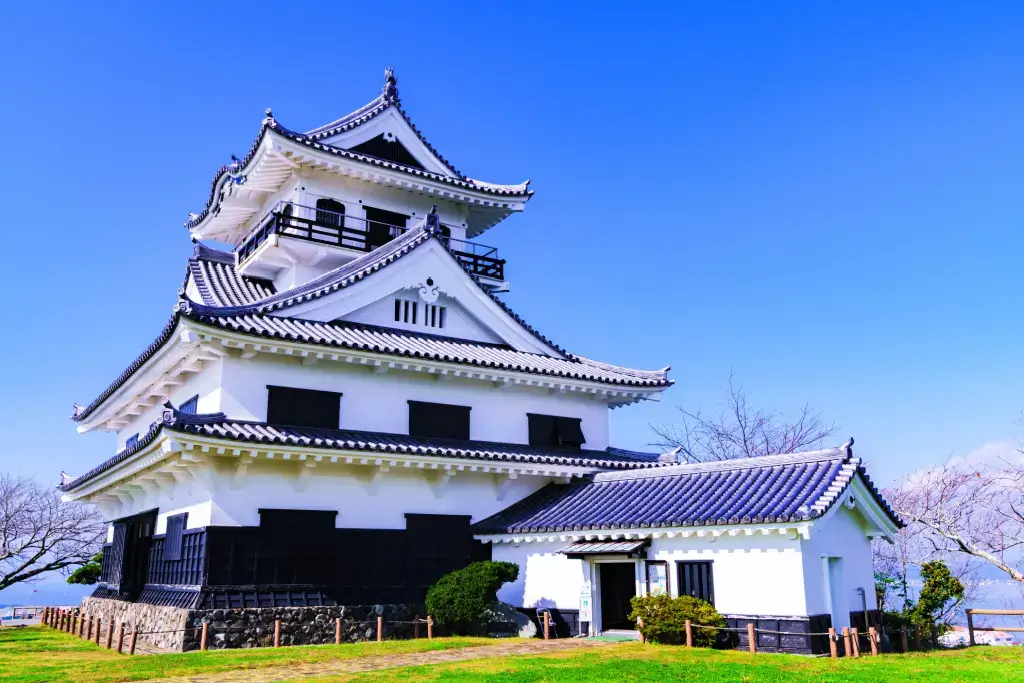
You’ll find the Satomi Hakkenden Museum inside the castle, about Takizawa Bakin’s famous epic novel. Visitors can explore exhibits showcasing the adventurous tales of eight samurai warriors. Additionally, the museum displays colorful artwork, books, and prints that tell exciting stories from Japan’s history.
Surrounded by Shiroyama Park, Tateyama Castle invites visitors to immerse themselves in natural charm. The park features lush greenery, vibrant cherry blossoms in spring, and picturesque walking paths. Plus, having a little zoo, flower patch, and kids’ playground is lovely and perfect for outdoor activities.
Are you looking for great snacks while visiting locations like the Boso Peninsula? Check out Sakuraco! Sakuraco delivers traditional Japanese snacks, teas, and sweets from local Japanese makers directly to your door so you can enjoy the latest treats directly from Japan!
Okinoshima
Okinoshima Island, off the coast of Munakata in Fukuoka, is full of mystery and tradition. It even became a UNESCO World Heritage site in 2017. This tiny island, less than a square kilometer, has one of Japan’s most important Shinto shrines, the Munakata Taisha Okitsu-gū. The island is seen as a god, linked to the Munakata goddesses who guard the sea paths between Japan and Korea.
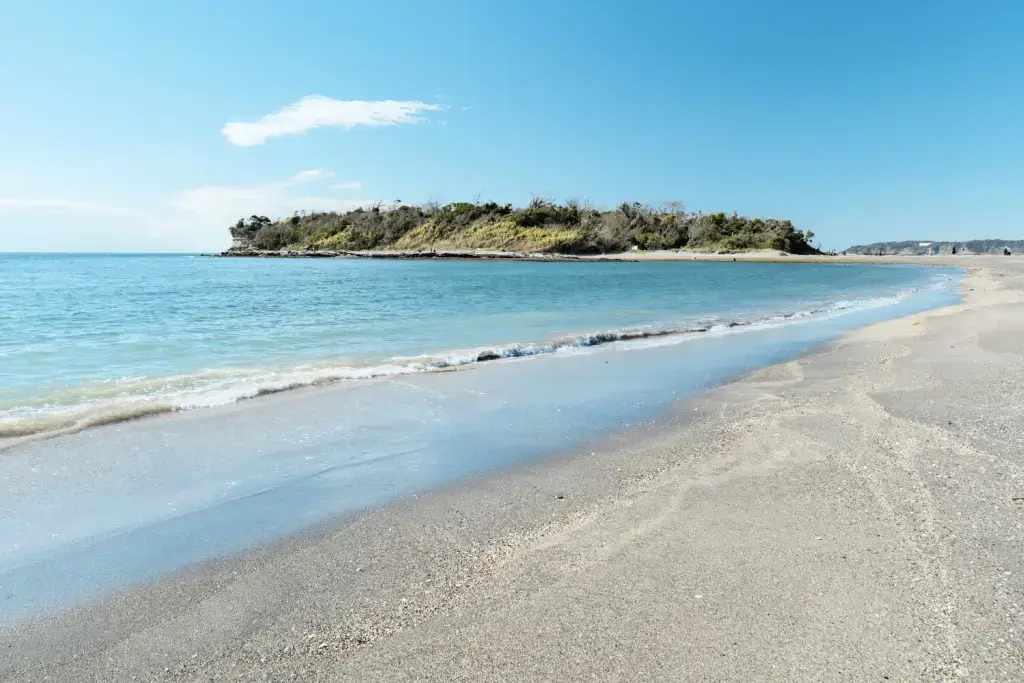
It is said that Okinoshima has been a sacred place for worship since ancient times, with rituals starting in the fourth century AD. Over time, the island has accumulated more than 120,000 artifacts, such as pottery, gold rings, and bronze dragon heads. These were gifts from traders abroad who wished for safe sea travel.
Despite its historical and cultural significance, Okinoshima remains mysterious and off-limits to most people. Unfortunately, women aren’t allowed on the island, and even men need to do a special cleansing ritual before they can go there.
Boso Flower Line
The Boso Flower Line is like a colorful ribbon stretching 46 kilometers from Tateyama to Minami Boso. Along this gorgeous route, you’ll find a delightful array of flowers, including nanohana and snow daisies, painting the roadside in vibrant colors. From January to April, these flowers are usually in full bloom, creating a spectacular sight for visitors.
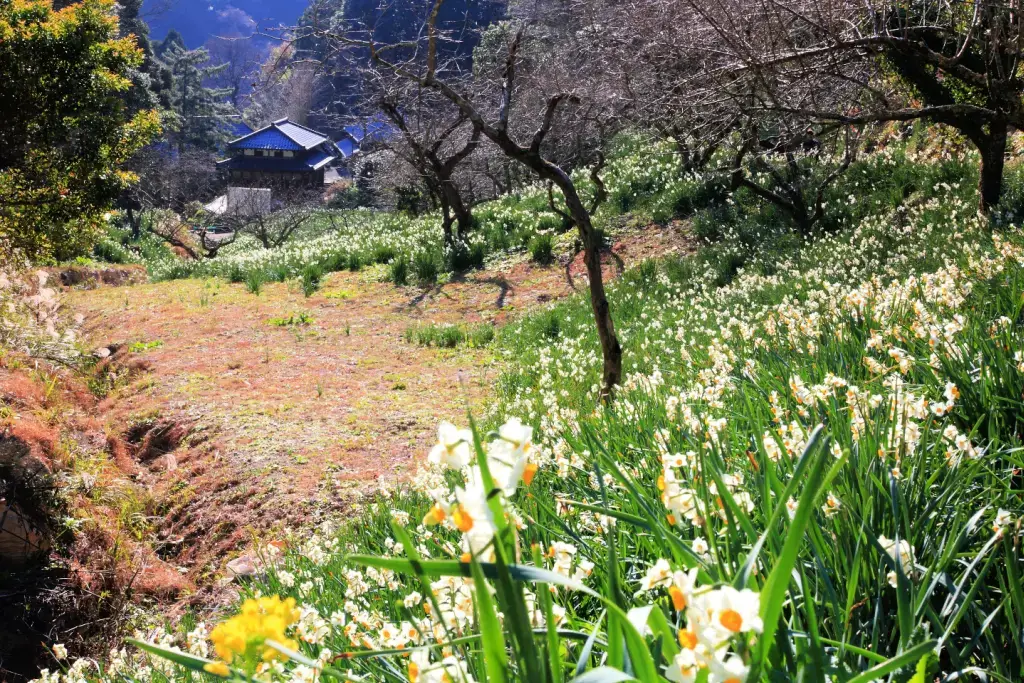
The highlight of the Boso Flower Line is the variety of flower fields you can explore. You can wander through the Shiramazu Flower Fields and the Senda Flower Fields, where groups of small flower farms boast a wide range of blooming flowers and provide flower-picking service for guests.
Aside from these lovely fields, many other attractions along the Boso Flower Line exist. Two lighthouses, Sunosaki Lighthouse and Nojimazaki Lighthouse, stand as iconic landmarks along the route. The former offers breathtaking views of Mt. Fuji and Izu Peninsula, while the latter provides majestic vistas of the Pacific Ocean.
Nojimazaki Lighthouse
The Nojimazaki Lighthouse proudly stands at the southernmost point of the Boso Peninsula, located in Minamiboso. This ancient guiding light was among the earliest lighthouses in Japan, influenced by Western architecture. It was built after Japan opened its doors to the world during the Meiji Era (1868-1912). Originally lit in 1869, the lighthouse has endured the tests of time, surviving damages and renovations while retaining its essential allure.
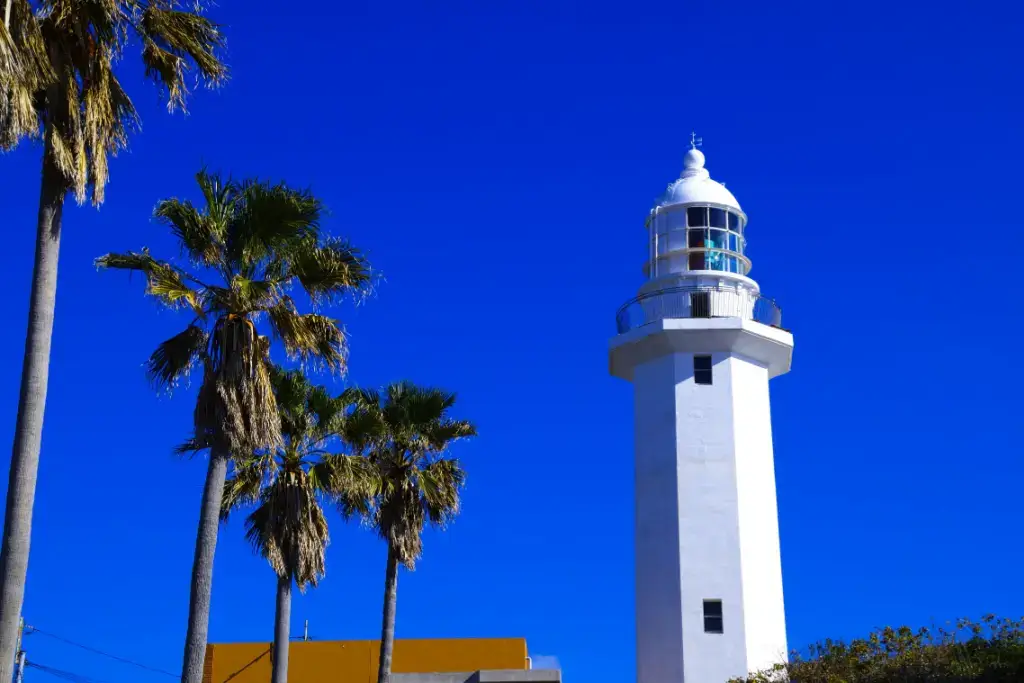
People can go inside and climb a spiral staircase to reach the top, where they’ll find amazing views. You can also drop by the Kirarin Museum, which shows the lighthouse’s captivating history. Moreover, The Nojimazaki Lighthouse has a nearby park with strolling paths to enjoy the beautiful coastal scenery. The park has also many palm trees and exclusive sculptures, making it peaceful.
Why should I visit the Boso Peninsula?
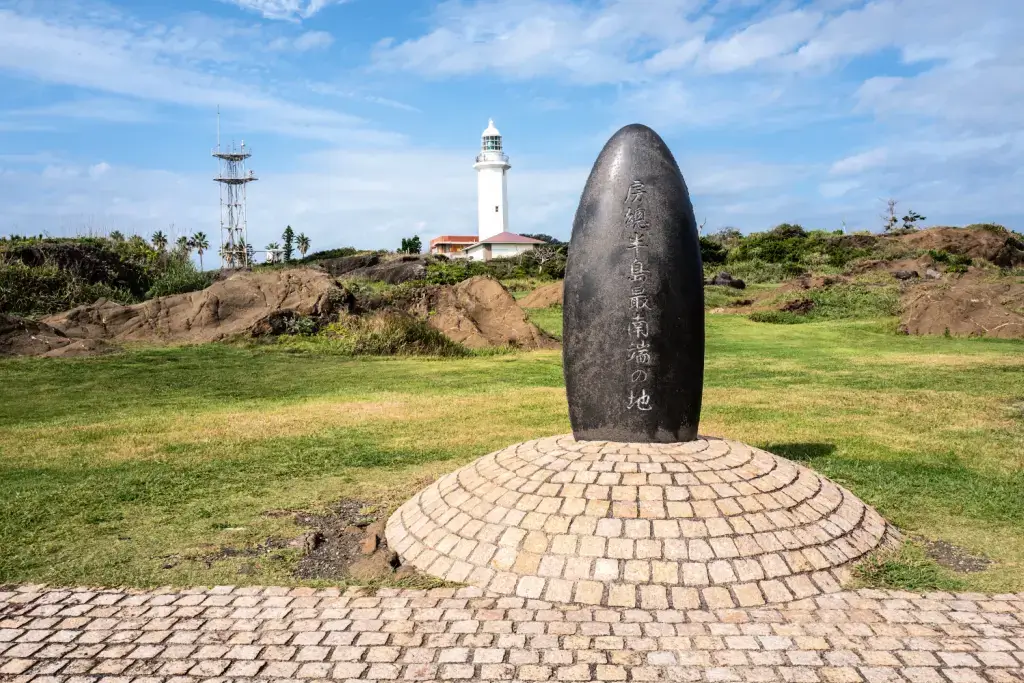
The Boso Peninsula is a perfect destination for a pleasant and exciting vacation. It offers plentiful spectacular landscapes, charming beaches, and fresh delicacies. Furthermore, it’s worth discovering hidden gems such as Kamogawa SeaWorld, Tateyama Castle, and the Boso Flower Line, as each gives everyone unforgettable experiences. In short, the Boso Peninsula caters to a wide range of interests, from magnificent scenery to fascinating historical sites. So, why not plan your visit today and share your thoughts in the comments below?

